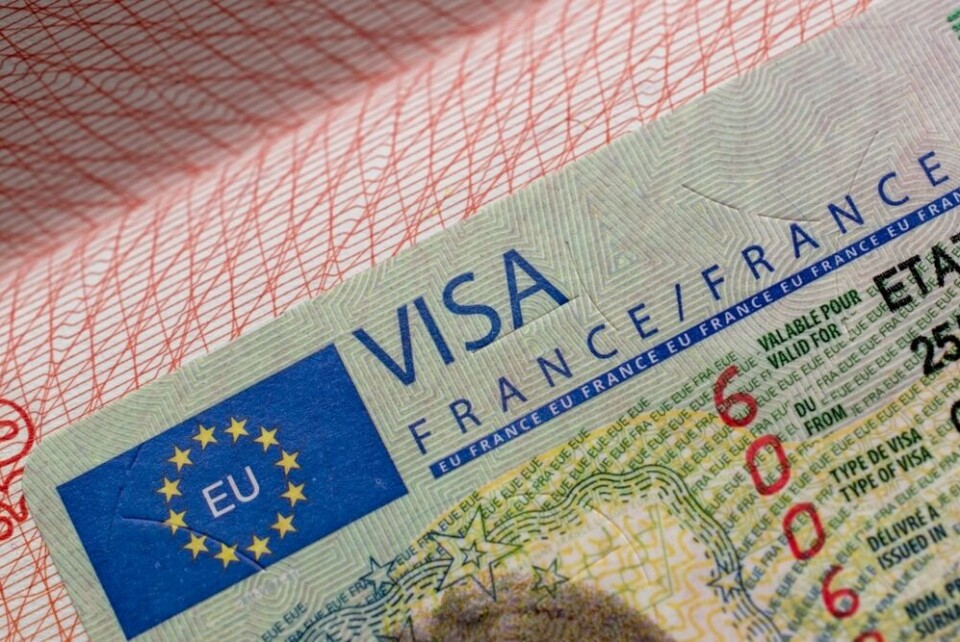-
How long does it take to sell property in different areas of France? New study
Many major cities are showing signs of recovery when it comes to supply, demand, prices, and time to sell
-
Map: Car insurance costs rise in France - see the average in your region
Multiple studies show that costs are rising by around 5% year-on-year, with major differences by region and vehicle model
-
Paris pledges action against voyeurs in public swimming pool changing rooms
It comes after several women came forward to report similar sexual assaults
What changes in France in 2024 for residency rights and border control
We look at France’s new immigration law, the EU’s Entry / Exit system and the UK’s ‘ETA’ border system

Article uploaded December 26, 2023, updated January 2, 2024
People travelling to France in 2024 – either on a short or long-term basis – are likely to see changes at the border and beyond.
This is due both to France’s new immigration law as well as the introduction of new border controls across the EU.
People returning to the UK will also see some changes.
We cover all of these changes here.
France’s immigration law
The new immigration law is expected to bring several significant changes. Note that on writing, it is still going through a final vetting process by the Constitutional Council, but has been voted through parlimanent.
This changes include:
An ‘automatic visa’ right for British people who own second homes in France.
The details will be clarified in a decree, but this means if you are British and own a home in France (and your main residence is abroad) you can come for extended stays of more than three months without formalities.
Read more: Automatic visa for second home visits: Senator feedback and questions
Read more: What happens next for law to ease second-home visits for France?
Obtaining a ‘multi-year’ card will involve passing a language test at A1 level, affecting people such as self-employed and employed workers and people coming to France to join family members, who typically get a ‘temporary’ one-year card as their first card.
Some foreign non-EU citizens will also now no longer be able to obtain more than three 'temporary' cartes de séjour (residency cards) in a row under the same heading; ie. after this their only option will be to obtain a 'multi-year' version of the same card (two to four years' duration) or apply for a card under a different heading. At present, obtaining a multi-year card on renewal is dependent only on showing 'assuduity' in following any language training you may have been asked to undertake if you did not have basic French when you came, and that you are integrated in France and adhere to 'Republican values', however this is set to change with the test requirement.
This change was expected to also affect retirees moving to France on 'visitor' visas, but this was changed in the law's text at the last minute.
Children born in France to immigrant families no longer become French automatically, but have to apply for this, stating their desire to become French.
A new four-year ‘medical talent’ residency card will make it easier for doctors, pharmacists and midwives to come and work in France.
Read more: Residency cards, expulsions, second homes: what French bill proposes
European Entry/Exit System
The European Entry / Exit System is set to come into force in the autumn, it is planned.
It will bring new formalities for any non-EU, non-French people coming into France for holidays and other short stays.
People with long-stay visas and residency cards are not concerned.
On entering or leaving the EU’s Schengen area, you will have to provide biometric data - including having a photograph and fingerprints taken - as well as some other basic information about yourself and your trip.
The system will automatically track people’s comings and goings into the Schengen area and their adherence to the 90/180 days rule.
Eventually, it should remove the need for any passport stamps.
A complementary system of online pre-authorisation for visiting the EU – Etias – is set to follow about six months after the start of EES, in the first half of 2025.
Read more: New European Entry/Exit System: 9 key things to know in advance
UK’s new ‘ETA’ border system
The UK is bringing in its own system comparable to the EU’s ‘Etias’, to be called the Electronic Travel Authorisation (ETA) “by the end of the year [2024]”.
Costing £10, this will be an online process to obtain authorisation to visit the UK, and will be aimed at people of other nationalities, such as French people, who do not need visas for short stays in the UK.
It will not impact British (or Irish) citizens – including dual-nationals – nor those who have long-term residency rights in the UK.
Read more: UK unveils launch price of new visa waiver: when and who is affected?
Legal challenge on EU citizenship rights
Britons’ rights campaigner Alice Bouilliez from the Gers and her lawyers, including Julien Fouchet, are waiting to hear the judge’s decision after a hearing in November.
Mrs Bouilliez believes Britons’ EU citizenship rights, such as the right to vote in EU elections, should not have been so easily taken away by the Brexit vote.
Read more: EU court to rule on Briton's right to vote in EU elections
Brexit border checks on goods?
Plant and animal health checks on goods coming into the UK from the EU are scheduled to come into force on January 31, after being put off several times.
If applied, they are also expected to restrict travellers from bringing in certain goods to the UK in their baggage, for example French cheese and charcuterie.
Read more: UK again delays launch of its Brexit controls for goods coming from EU
























